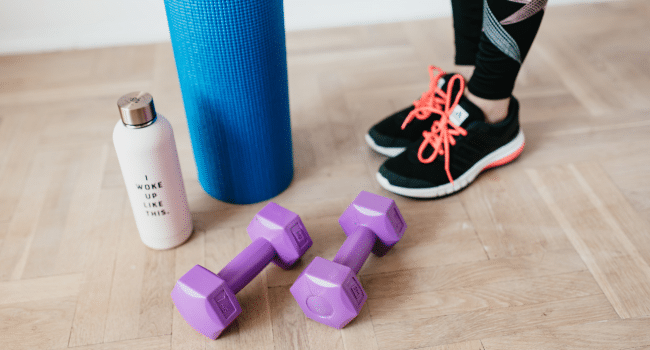Table of Contents
The Pre-Workout Game Has Changed
Old-school pre-workouts were loud. Bright colors, bold labels, and promises of “extreme energy.” Most of them were packed with caffeine, artificial flavors, and stimulants you couldn’t pronounce. People used them because that’s all there was.
But things are changing.
Fitness professionals aren’t chasing the biggest buzz anymore. They’re chasing focus, stability, and better performance. They want fuel that fits real workouts—not just hype in a tub.
What Was Wrong With Traditional Pre-Workouts?
Too Much Caffeine
Some pre-workouts hit 300mg of caffeine or more. That’s equal to three or four cups of coffee. For many, that’s way too much. It leads to jitters, rapid heart rate, and crashes halfway through the workout.
Josh, a strength coach in Atlanta, said, “I used to take a scoop of high-stim pre-workout before lifting. I’d be shaking before I even picked up a barbell. Not helpful.”
Sketchy Ingredients
A lot of products used proprietary blends. You didn’t know how much of anything was in them. Some included banned substances or weird chemicals just to sound impressive.
That’s not what serious athletes want. They want clean, proven ingredients. Nothing extra.
Digestive Problems
Thick powders and sugar-heavy formulas didn’t sit well. Some made people feel bloated, others sent them to the bathroom mid-set.
Fitness routines don’t have time for that kind of interruption.
What Fitness Pros Want Now
Energy + Clarity
Caffeine is still in the mix—but in smaller amounts. Pros now use 60–100mg. Enough to boost focus without the side effects.
Moderate caffeine hits smoother. It gives you better control. You’re alert but not overstimulated.
Protein as Fuel
Many fitness pros are replacing pre-workout powders with protein and caffeine combos. These drinks support performance and recovery in one bottle.
They’re lighter, easier to digest, and give your body the fuel it actually needs.
Javvy Coffee reviews is one example. It offers 80mg of caffeine with 10g of protein. It’s not a shake. It’s not a double espresso. It’s a pre-workout option that works for strength training, cardio, or early morning sessions.
No Bloat, No Blender
The best pre-workouts now fit in a bag, fridge, or car console. No powder. No scooper. No shaker bottle.
Ready-to-drink options are key. They don’t slow you down or take up space in your routine.
What the Science Says
Moderate Caffeine Boosts Performance
Studies show that low to moderate doses of caffeine (3–6mg/kg) improve strength, endurance, and mental clarity. For a 150 lb. person, that’s about 80–180mg. You don’t need 300mg to feel the benefits.
Protein Before a Workout Helps Recovery
Drinking 10–15g of protein before training supports muscle repair. A 2020 study in the Journal of the International Society of Sports Nutrition found that pre-workout protein intake improved strength output and reduced soreness.
Combining caffeine and protein? That’s a smart move. It boosts performance and speeds up recovery.
Real-World Routines From Fitness Pros
Strength Training
Before lifting, pros want steady energy and light fuel. Not heavy shakes or high stim pre-workouts.
Tina, a powerlifter in Houston, drinks protein coffee 20 minutes before training. “It wakes me up, but I don’t feel shaky. I can train harder and still feel clear-headed.”
She used to eat a banana with black coffee. Now, she grabs a bottled protein coffee. Less effort, better results.
Running and Cardio
Runners used to rely on big protein shakes or black coffee. But shakes were too heavy. And black coffee didn’t fuel the muscles.
Now, more runners sip light protein drinks with moderate caffeine before hitting the road.
David, a marathoner in Denver, said, “I stopped using powders. They messed with my stomach. Now I drink a light coffee protein drink and I’m out the door in 10 minutes.”
CrossFit and HIIT
Quick bursts of energy and fast movement need fuel—but not too much bulk.
CrossFit athletes are reaching for lighter, functional drinks. No one wants to feel full before box jumps or kettlebell swings.
Protein + caffeine combos offer a no-crash boost and muscle support at the same time.
What To Look For In a New Pre-Workout
Caffeine Under 100mg
Avoid overloading your system. Look for products with 60–100mg of caffeine. That’s enough to stay sharp without frying your nerves.
8–15g of Protein
This gives your body fuel and helps with post-workout recovery. Whey or plant-based proteins both work. Avoid thick, chalky textures.
No Sugar, No Weird Stuff
Clean ingredients. No added sugars. No gums or fillers. If you can’t read the label, don’t drink it.
Portable Format
Make it easy. Choose something you can grab and go. Bottles, cartons, or cans are ideal. If it takes prep, it’s less likely to stick.
Build a Better Pre-Workout Routine
30 Minutes Before Training
- Drink a clean protein + caffeine drink
- Or, eat a light snack with water
- Do a short warm-up to activate muscles
During Training
- Sip water or electrolytes
- Focus on breath and form
After Training
- Eat a balanced meal within 60–90 minutes
- Include carbs, protein, and healthy fat
Simple Pre-Workout Combos To Try
- Javvy Coffee + 10-minute walk
- Greek yogurt + green tea
- Banana + black coffee with almond butter
- Ready-to-drink protein shake + stretching
Each combo should be light, fast, and focused on energy—not fullness.
Final Thoughts
The new pre-workout isn’t about being hyped up. It’s about being prepared.
Fitness professionals are making smarter choices. They want fuel that helps them move, not crash. They’re swapping powders and sugar bombs for clean, functional energy.
You don’t need a chemistry set to work out. You need something simple, steady, and ready to go.
This shift isn’t a fad. It’s the new normal. Smarter fuel for real movement.
